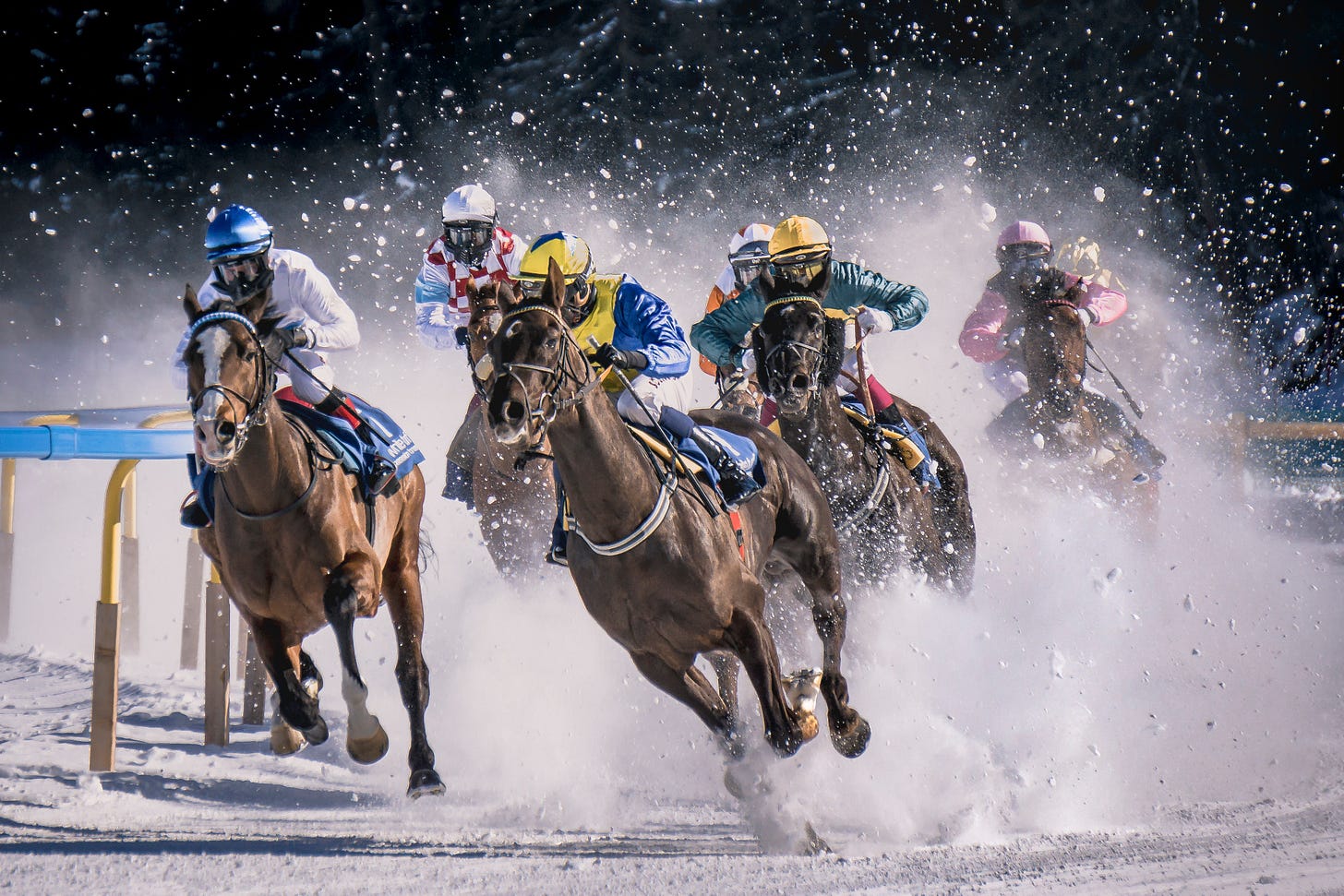I made a big mistake
There's a delicate line between being confident and compensating.
In the past 15 years, I have been to the Kentucky Derby nine times.
The Kentucky Derby is the greatest people-watching spectacle on Earth.
And not for the big hats and outrageous suits, but for the betters.
Let me give you an example.
In 2012, my good friend Mike and I were waiting in a line a mile deep to place our bets.
I turn to Mike and say, “Who are you betting on?”
With his nose in the Racing Form, he says, “I don’t know. I don’t know who I like.”
Twenty minutes later, we are next up in line. I said to Mike, “Who are you betting on?”
He responds the same way, “I don’t know. I’m going to have to pick someone on the fly.”
I felt like I was out to dinner with my mother-in-law, who after staring at the menu for 10 minutes makes the waitstaff stand there for another minute as she says, “Ummmm, I guess I’ll have the... ummmm….”
Now it is our turn. Mike goes up to the betting window and says to the clerk, “Uhhhhh, I guess I’ll put $20 on horse No. 6, Bodemeister.”
As we walked back to our seats, Mike is now telling me what an idiot I am for not betting on Bodemeister. How he is“guaranteed to win.”
The horse’s chances didn’t change at all. It is the same horse. The same competition. The same racetrack. But in Mike’s head, Bodemeister’s prospects improved dramatically with Mike’s bet.
I laughed as I thought about Mike 45 seconds before, unsure of his decision. But somehow the simple act of betting made him the most confident person in Churchill Downs.
It turns out overconfidence in a decision is not unique to Mike. University of British Columbia professors Robert Knox and James Inkster call this phenomenon “post-decision dissonance reduction.”
Their study showed even if we are uncertain about a decision, once a firm decision is made we will instantly and confidently feel we made the right decision.
In fact, we will feel so confident that our next step will be to convince the people around us to make the same decision. That fuels our certainty. That is why Mike called me an “idiot” for not betting on Bodemeister.
This behavioral response serves us extremely well. If we second-guess every decision we make, we would be neurotic messes.
But the problem lies in when we are wrong. When we’ve made the wrong decision and spent our time and reputation convincing people we were right, we become stuck.
Robert Cialdini says this is “our nearly obsessive desire to be (or to appear) consistent with what we have already done. Once we have made a choice or taken a stand, we will encounter personal and interpersonal pressures to behave consistently with that commitment.”
You can’t tell everyone that the move to Florida was the best decision you’ve ever made, only to come to find out the weather no longer makes you happy (spoiler: weather stops making you happy after six months). By that time you have moved away from your friends. And your family. And your community.
This is a hard concept to come to terms with because we talk every day about the effects of taxes, and the resulting outmigration.
While taxes might drive a population increase for the state of Florida, the people who move there are never able to replace the lost things that matter most: the people they love and the lives they’ve invested in.
Bodemeister led the Kentucky Derby from the start. As he entered the final turn, he was five lengths ahead of the next horse. Mike turned to me and said, “I told you.”
And then a horse appeared out of the pack. He closed the gap in the last 100 yards.
I’ll Have Another inched out Bodemeister to win the 2012 Kentucky Derby.
I look back at Mike. He is staring at the racetrack in disbelief. “It doesn’t make sense,” he said.
The next time someone is trying to convince you to make a decision, it will help to find out if they are trying to help you, or to convince themselves.



